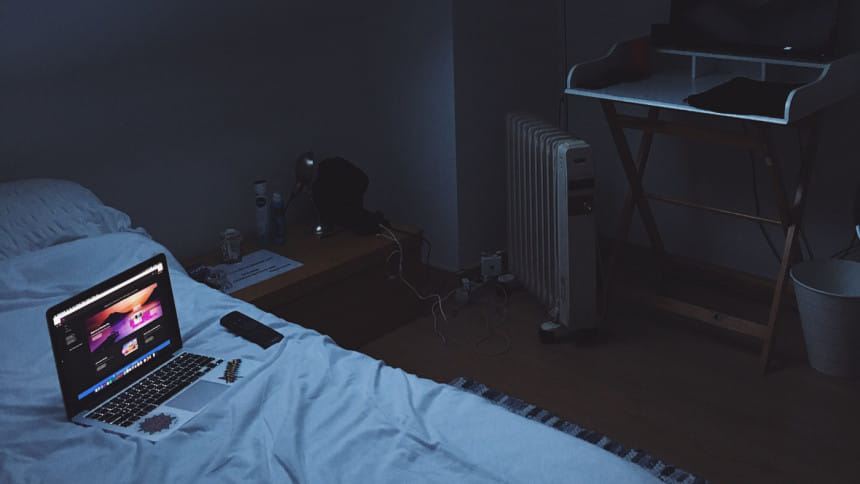Is remote work really for you?

Amidst all the negative ways the pandemic has changed our lives, there have been a few positive changes it has brought upon the world. The most prevalent example of this is the rise of remote work.
The lockdowns have shown the world that showing up to the office to work is somewhat arbitrary and we can get just as much done while working from home. Remote work is consistently on the rise and unlike the pandemic, it has mostly had a positive impact on our lives.
However, remote work too has its downsides and it may not indeed be for everyone. In fact, many employees rejoiced at the prospect of going back to the office once lockdown was lifted so let's weigh the pros and cons of WFH to see if it is an ideal fit for you.
Pros
Avoiding commute-related hassle
There is no challenge bigger in our lives than commuting to work. The stress added to our lives from Dhaka's traffic conditions on a daily basis is unparalleled and remote work is a godsend in terms of that. Not only do we save hours from our day that we would have otherwise spent being stuck in traffic, we also save the extortionate Uber/CNG/Pathao fares associated with our commute. To add to the perks, we also get the chance to protect ourselves from the nasty heatwaves that have been a regular fixture in recent times and also pollution.
Increased productivity
Adding to the first point, the commute helps us save a lot of energy and time which in return has a positive impact on our productivity. The commute on its own can take up a lot of our time and to add to that, we need to recover from travelling in harsh conditions so of course our productivity will take a hit. Not when you work from home though! In addition to that, working remotely also gives you the option of picking your hours more freely so you can choose the time of day when you are the most productive to complete your task. Of course, this does not apply to tight deadlines/urgent work. However, as long as you are turning your assignments in on time, you are good to go.
Better work-life balance
This is a given because staying home means that you get to see/spend more time with your family. Working from home also gives you the luxury of doing more with your downtime which would have otherwise been spent sitting at your desk browsing your phone. You can get a workout in, cook yourself something, even rest properly in between (beats sitting and napping any day!). The possibilities are endless.
Cons
Communication blockers
Of course, working remotely has its downsides too and the lack of communication and coordination is exactly what caused many organisations to pull the plug on WFH. While at the office you have your co-workers right next to you, working remotely means that you will have to get in touch with them through a communication platform when you need something from them. While these tools and platforms are amazing, there is some waiting time involved and this can have dire consequences especially when the matter is of high urgency. Working separately also has an impact on the way we collaborate with teammates and the communication gaps can even give rise to misunderstanding thereby affecting team harmony.
A life filled with low-quality social interactions
Goes without saying that interacting with people online is or can never be the same as interacting with them upfront. Working from home really does give you some perspective on the importance of being around people and how much we value interactions. Plus, not being in touch with anyone for a prolonged period of time can give rise to the feeling of loneliness and this can have an adverse effect on our mental health and nullify the boost in productivity that we were talking about earlier.
A lack of structure
Perhaps the biggest downside of working from home is the lack of structure and coordination it brings to our life. Sure, not having your supervisor breathing down your neck all the time can be a good thing but the lack of an individual keeping you in check can be equally bad if not worse. Working from home can get chaotic sometimes as the lines between work and life get blurrier and more intertwined. You will find yourself working when you should be resting and vice versa. Not all of us are skilled at allocating our time effectively and this is exactly where our offices and managers step in to begin with.

 For all latest news, follow The Daily Star's Google News channel.
For all latest news, follow The Daily Star's Google News channel. 








Comments